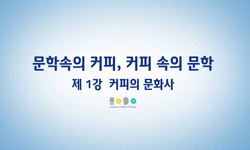It is well known that the editor of Modern Japan (Modan Nippon), published by Bungei Shunju, was Ma Haesong, a native of the Korean peninsula. Although Modern Japan fell short of attaining the same level of popularity as Kōdansha’s King (Kingu), it...
http://chineseinput.net/에서 pinyin(병음)방식으로 중국어를 변환할 수 있습니다.
변환된 중국어를 복사하여 사용하시면 됩니다.
- 中文 을 입력하시려면 zhongwen을 입력하시고 space를누르시면됩니다.
- 北京 을 입력하시려면 beijing을 입력하시고 space를 누르시면 됩니다.
https://www.riss.kr/link?id=A108049360
-
저자
Natsuko Ozaki (Hirosaki University)
- 발행기관
- 학술지명
- 권호사항
-
발행연도
2022
-
작성언어
English
- 주제어
-
등재정보
KCI등재,SCOPUS,ESCI
-
자료형태
학술저널
- 발행기관 URL
-
수록면
45-74(30쪽)
-
KCI 피인용횟수
0
- DOI식별코드
- 제공처
- 소장기관
-
0
상세조회 -
0
다운로드
부가정보
다국어 초록 (Multilingual Abstract)
It is well known that the editor of Modern Japan (Modan Nippon), published by Bungei Shunju, was Ma Haesong, a native of the Korean peninsula. Although Modern Japan fell short of attaining the same level of popularity as Kōdansha’s King (Kingu), it reached a broader range of readers than the rival modern magazine New Youth (Shin seinen), associated with the important writers Edogawa Ranpo and Yokomizo Seishi. Indeed, Modern Japan cultivated a profile somewhere between that of King and New Youth. However, perhaps due to its middling status, the magazine has yet to be the subject of a comprehensive study in any of the fields of literary, cultural, or publishing studies.
This paper looks specifically at two special extra editions of Modern Japan, called the Korea Editions, published in 1939 and 1940 respectively. These special editions contained a hybrid of both state propagandistic elements and editor Ma Haesong’s perspective on his homeland. Although there is some extant research on the Korea Editions from several points of view, there is still room for a detailed analysis of how exactly Korean writers and literary works were introduced in their pages, and what type of literature was included. Specifically, this paper examines the literary criticism of Kim Saryang and Han Sik, clarifying their differing appraisals of the contemporary literary situation. Then, it analyzes the style and content of Pak T’aewŏn’s short story, “A Street Darkly” (Michi ha kuraki wo). Through highlighting this combination of perspectives, I hope to illuminate the politicality of Modern Japan realized through a rereading of the Korea Editions.
참고문헌 (Reference)
1 Hong Sŏnyŏng, "Zasshi Modan Nippon to Chōsen ban no kumiawase, sono sogo" 138 : 55-65, 2010
2 Jang You-Lee, "Zasshi Modan Nippon ga kōchiku shita ‘modan’: Zasshi no burandoka to dokusha senryaku" 211 : 32-46, 2014
3 Ma Haesong, "Zakki" 246-, 2009
4 Kusaba Sakae, "Noro kōchi" Masu shobō 1941
5 Kikuchi Kan, "Modan Nippon ni tsuite" 1 (1): 1930
6 Yasufuku Tomoyuki, "Modan Nippon kara mita Dazai Osamu ‘Uba-sute’ ni tuite" 5 : 226-235, 2000
7 Pak T’aewŏn, "Michi ha kuraki wo" 266-280, 2009
8 Jang You-Lee, "Ma Haesong ni okeru kokkakan keisei: Seizon wo meguru minzoku to kokka no mondai wo chūshin ni" 6 : 130-143, 2015
9 Aikawa Takuya, "Higeki wo genzen saseru tekusuto he" 12 : 145-161, 2014
10 Yi, Christina, "Colonizing Language: Cultural Production and Lan-guage Politics in Modern Japan and Korea" Columbia University Press 2018
1 Hong Sŏnyŏng, "Zasshi Modan Nippon to Chōsen ban no kumiawase, sono sogo" 138 : 55-65, 2010
2 Jang You-Lee, "Zasshi Modan Nippon ga kōchiku shita ‘modan’: Zasshi no burandoka to dokusha senryaku" 211 : 32-46, 2014
3 Ma Haesong, "Zakki" 246-, 2009
4 Kusaba Sakae, "Noro kōchi" Masu shobō 1941
5 Kikuchi Kan, "Modan Nippon ni tsuite" 1 (1): 1930
6 Yasufuku Tomoyuki, "Modan Nippon kara mita Dazai Osamu ‘Uba-sute’ ni tuite" 5 : 226-235, 2000
7 Pak T’aewŏn, "Michi ha kuraki wo" 266-280, 2009
8 Jang You-Lee, "Ma Haesong ni okeru kokkakan keisei: Seizon wo meguru minzoku to kokka no mondai wo chūshin ni" 6 : 130-143, 2015
9 Aikawa Takuya, "Higeki wo genzen saseru tekusuto he" 12 : 145-161, 2014
10 Yi, Christina, "Colonizing Language: Cultural Production and Lan-guage Politics in Modern Japan and Korea" Columbia University Press 2018
11 Kim Saryang, "Chōsen no sakka wo kataru" 270-272, 2009
12 Han Sik, "Chōsen bundan no kinkyō" 264-265, 2009
13 Konoe Fumimaro, "Chōsen ban he no koto-ba" 82-83, 2009
14 Jang You-Lee, "1930 nendai kōhan ni okeru zasshi Modan Nippon no henshū Taisei: Zensen to jūgo, shokuminchi chosen wo megutte" 107 : 13-26, 2014
동일학술지(권/호) 다른 논문
-
Guest Editor’s Introduction: Japanese Imperialism, Modernity, and Korean History
- 고려대학교 한국사연구소
- Joshua Lee Solomon
- 2022
- KCI등재,SCOPUS,ESCI
-
Return of Myth, Myth Resources, and the Contemporaneity of Mythology in Korea and China Today
- 고려대학교 한국사연구소
- 홍윤희
- 2022
- KCI등재,SCOPUS,ESCI
-
Missing Keystones: Echoes of Empire in Kobayashi Masaru’s “Bridge Building”
- 고려대학교 한국사연구소
- Nicholas Lambrecht
- 2022
- KCI등재,SCOPUS,ESCI
-
Discontinuities and Discrepancies in the Hybridization Process of Nangnang Culture
- 고려대학교 한국사연구소
- Andrea De Benedittis
- 2022
- KCI등재,SCOPUS,ESCI
분석정보
인용정보 인용지수 설명보기
학술지 이력
| 연월일 | 이력구분 | 이력상세 | 등재구분 |
|---|---|---|---|
| 2023 | 평가예정 | 해외DB학술지평가 신청대상 (해외등재 학술지 평가) | |
| 2020-01-01 | 평가 | 등재학술지 유지 (해외등재 학술지 평가) |  |
| 2016-01-01 | 평가 | 등재학술지 선정 (계속평가) |  |
| 2015-01-01 | 평가 | 등재후보학술지 유지 (계속평가) |  |
| 2013-01-01 | 평가 | 등재후보 1차 FAIL (등재후보1차) |  |
| 2012-01-01 | 평가 | 등재후보학술지 유지 (기타) |  |
| 2011-01-01 | 평가 | 등재후보학술지 유지 (등재후보2차) |  |
| 2010-01-01 | 평가 | 등재후보 1차 PASS (등재후보1차) |  |
| 2008-01-01 | 평가 | 등재후보학술지 선정 (신규평가) |  |
학술지 인용정보
| 기준연도 | WOS-KCI 통합IF(2년) | KCIF(2년) | KCIF(3년) |
|---|---|---|---|
| 2016 | 0.08 | 0.08 | 0.07 |
| KCIF(4년) | KCIF(5년) | 중심성지수(3년) | 즉시성지수 |
| 0.06 | 0.05 | 0.549 | 0.02 |





 DBpia
DBpia





